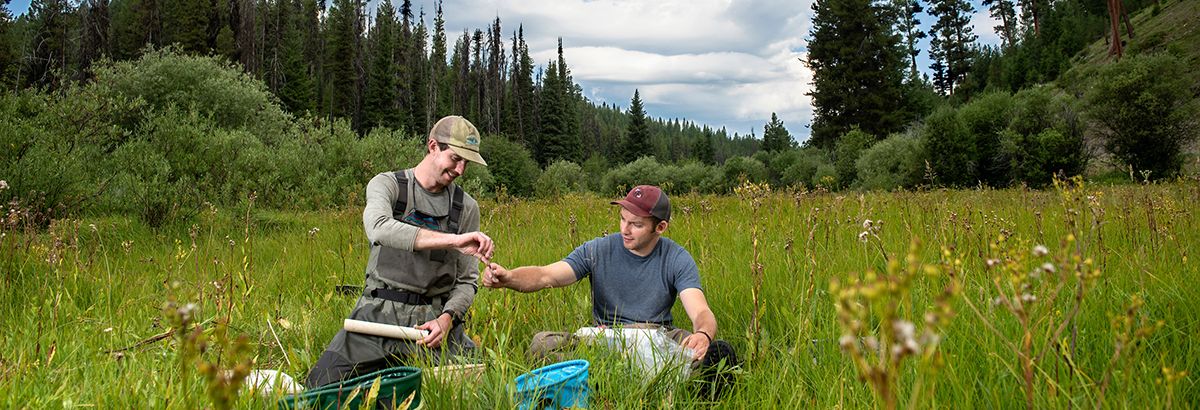Student Spotlight: Bailey Durnell

In Episode 63, Bailey Durnell shares about her studies in political science with a graduate certificate in gender and sexuality. Bailey discusses her research on power and feminist schools of thought, conceptions of freedom, and identity politics in neo-liberalism feminist activism.
Story Transcript
I grew up in Great Falls, Montana. Was actually super involved with Planned Parenthood in high school. You know, I was kind of, like, the only kid I knew that was politically active and had like liberal leanings. And, kind of realized that, you know, all of these interests that I had and everything that I was excited about, you know, it was like, were things that were changed through politics and through political activism and that kind of stuff.
I'm Bailey Durnell. I study political science with a graduate certificate in gender and sexuality studies.
We do professional papers so, it's three 25-page papers on three different topics. The first one I wrote as an undergraduate thesis, and it was comparing methodologies surrounding power within traditional, feminist schools of thought. And kind of what they see the point of like feminist activism being, whether it's to eliminate power over or to garner power to, you know, whether they see power as a relationship or as a social good. And then kind of looking at how like whether or not they were compatible, and just kind of, you know, taking different pieces from each of the schools of thought and looking at like efficacy.
So, my other political theory one was comparing Isaiah Berlin and Karl Popper's conceptions of freedom. Isaiah Berlin came up with notion of like, positive and negative liberty, which is pretty fundamental to how we conceive freedom nowadays—or at least one of the fundamental ways that we conceive of freedom. And Karl Popper is like the father of like, the open society. So, a lot of his stuff like influences the ideas of like globalization and like the neoliberal era. The biggest takeaway from my paper was they both try and dispense with notions of human nature. And so, it was just kind of pointing out like the difficulties of dispensing what the nature of humans if you're going to argue that there's any sort of like universal experience.
The third one was identity politics neo-liberalism feminist activism. It uses principles within identity economics, which kind of splits up a person's identity into three parts. There's like a way you feel about yourself and then an identity that others ascribed to you. And then, finally, there's a third identity in which you like reconcile those two things. The original purpose of identity and identity politics as it was like conceived of, was that it was a way to identify your placement within a system. And that makes it an effective tool, right? Cause you're, you know, you're identifying a system which needs to be replaced, but with like the impact of neo-liberalism on identity formation, it's becoming increasingly individualized. And so, we're not situating ourselves within a system or a structure. And therefore it's, you know, the like feminist activism itself has become really stratified, and a lot less focused. And so, I was kind of trying to link that result to this like identity formation.
The two advisors that I had on my papers are Dr. Grey and Dr. Saldin. Dr. Saldin is kind of an American politics expert—super knowledgeable in American politics. And then Dr. Grey is our political theory professor, and she's amazing. Every professor that I had, you know, I felt extremely comfortable talking to them. You know, I knew that they knew what I was capable of and so I was able to, I think, like really push myself and, like, what I was capable of because I didn't need to worry about, you know, like looking like I couldn't accomplish things or couldn't handle things. But everyone there knew what I was capable of and so I wasn't, it kind of took a lot of that pressure away, which was really cool. I think it made the program more fun for me.
